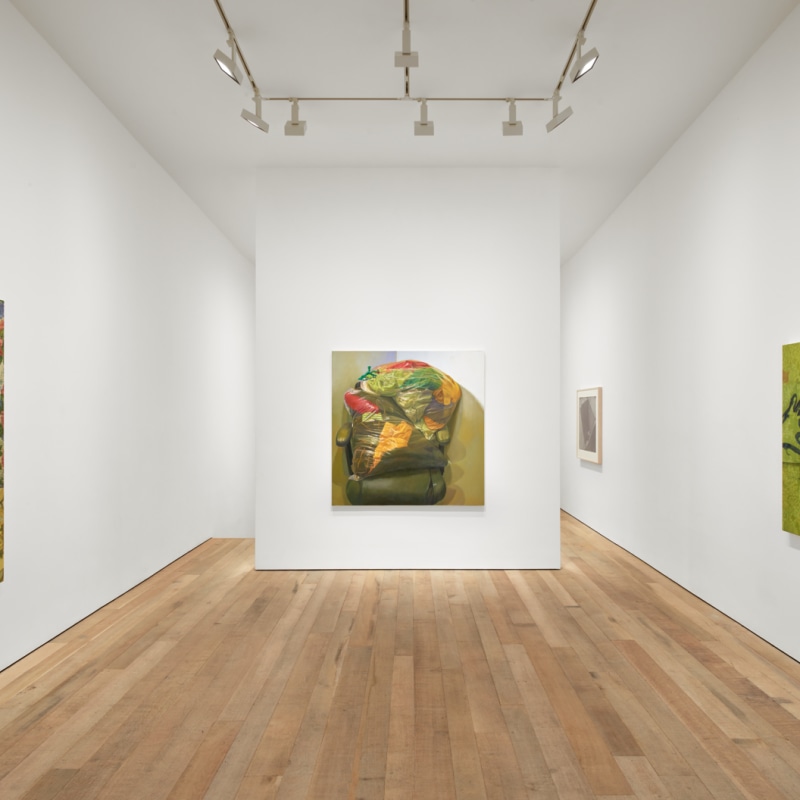The paintings I've done that I love the most are very intimate, and I am very interested in defining [how] reality changes as we look at it… the minute I do something with it, it becomes a fiction and I'm aware of that... I think that art is always fiction.
– Catherine Murphy, 2017¹
Opening in January is an exhibition of recent paintings by American artist Catherine Murphy (b. 1946)–widely celebrated within the US, the occasion will mark the artist’s first dedicated solo presentation outside her country.
Working primarily in painting and drawing, Catherine Murphy has exhibited extensively in the US over the course of her five-decade career, becoming renowned for a distinctive approach that encompasses a rigorous observational process that is centred on the everyday, her imagination and dreams, paired with an understanding of reality as a condition of constant flux and transition. Of this she has stated: ‘I dream of, as well as construct, an image that I want to do. the story has always been central to my wanting to make a painting. Even when it was more invisible, more a part of the mundane, it was important to me.²
Made over prolonged periods of sustained observation, her work focusses on day-to-day subject matter, habitually overlooked and commonplace elements drawn from her immediate surroundings and imagination–ranging from still lifes, self-portraiture, domestic settings and the outdoors. Rarely returning to the same subject or scene twice, Murphy composes her imagery deliberately, courting a contained fission between the canvas surface and its potential for imagistic illusion. Her scenographies reflect a precise study of painting and of the nature of representation itself, revealing unexpected or covert incongruities within reality and its narrative potential.
In this exhibition, Murphy presents a group of five paintings and two works on paper made between 2015-2021. Each of the works on view distil the artist’s idiosyncratic mode of representation, transfiguring domestic items–including clothing, ceramics, tablecloths, carpets and wallpapers–with precision. Meticulously articulated shifts in surface texture, light and form are subject to subtle perspectival distortions, cropped, magnified and tilted, exerting an internal gravity between actuality and illusion, rendering her subject anew for reencounter.
Throughout these works, Murphy defies conventional notions of image making, creating an axis of spatial representation and narrative, implicating the viewer through the evocation of the unexpected or irresolute. Elemental to her practice, this distinct approach emerged during a pivotal shift in the 1990s, in which she began to explore new ways of conjuring a bond between viewer and subject. Likewise, Murphy attributes poetry as a crucial source of inspiration.³ Particularly referring to the writings of Elizabeth Bishop, she views poetic language as a potent lens to reframe the ordinary.
In focusing on the functional and nondescript, her subject self-reflexively distorts understated things that underpin our perception of cyclical time and routine. In Flight, bands of carpeting rendered in close-up appear to tip and lurch toward a checkered bathrobe cast at the foot of the stairs, creating within the viewer a sense of gravity unmoored that might equally imply flying or falling. Elsewhere in Floribunda, a floral textile pattern reminiscent of late-twentieth century home furnishings is amplified to near abstraction, echoed in the lower segment by the designs of shattered dishes; obscured by the repeated floral motif, the pattern appears to disintegrate and collapse, unexpectedly destabilising the kitsch associations of the aesthetic with the uncanny.
By comparison to the chromatic intensity of her paintings, Murphy’s drawings reflect a resolute decision to exclude colour, focussing on tonal gradations entirely rendered in graphite in order to communicate her subject. The contrast of graphite with the raw paper surface in Nightwatch both elicit the stark light observed on surveillance camera and redouble its charged vacancy.4 Throughout these works Murphy readdresses habitual modes of seeing and perception, reenvisaging the incidental within the everyday with an element of introspection and the unknown.
Catherine Murphy (b.1946, Cambridge MA) studied at the Skowhegan School of Painting and Sculpture, Madison, in 1966, following which she obtained a BFA at the Pratt Institute, New York in 1967. Murphy has exhibited at institutions throughout the United States, including: The Museum of Modern Art, New York; the Phillips Collection, Washington DC; Smithsonian National Portrait Gallery; Walker Art Center, Minneapolis; Weatherspoon Art Museum, University of North Carolina; Whitney Museum of American Art, New York and Yale University Art Gallery, New Haven. She is a member of the American Academy and Institute of Arts and Letters and her work is held in numerous public collections including those of the Art Institute of Chicago; the Hirshhorn Museum, the Phillips Collection, the Metropolitan Museum of Art, the Museum of Modern Art, National Portrait Gallery, Washington DC and the Whitney Museum of American Art. Murphy lives and works in Poughkeepsie, New York.
Footnotes
1 Catherine Murphy, interview with James McElhinney, Oral history interview with Catherine Murphy, Smithsonian Archives of American Art, 21, 23 March 2017
2 Catherine Murphy, interview with John Yau, ‘In Conversation: Catherine Murphy’, The Brooklyn Rail, February 2005
3 Catherine Murphy, interviewed by Jennifer Samet, Hyperallergic, 02 August 2014
4 ‘It generally attaches itself to colour, would this be better in colour or would this be better in graphite…and that light that cameras make that kind of cheap surveillance camera makes, that blown out light would be really beautiful as a drawing’ – Catherine Murphy, in conversation with Ksenia M. Soboleva, The Brooklyn Rail, 01 December 2021 (00.29.20)
